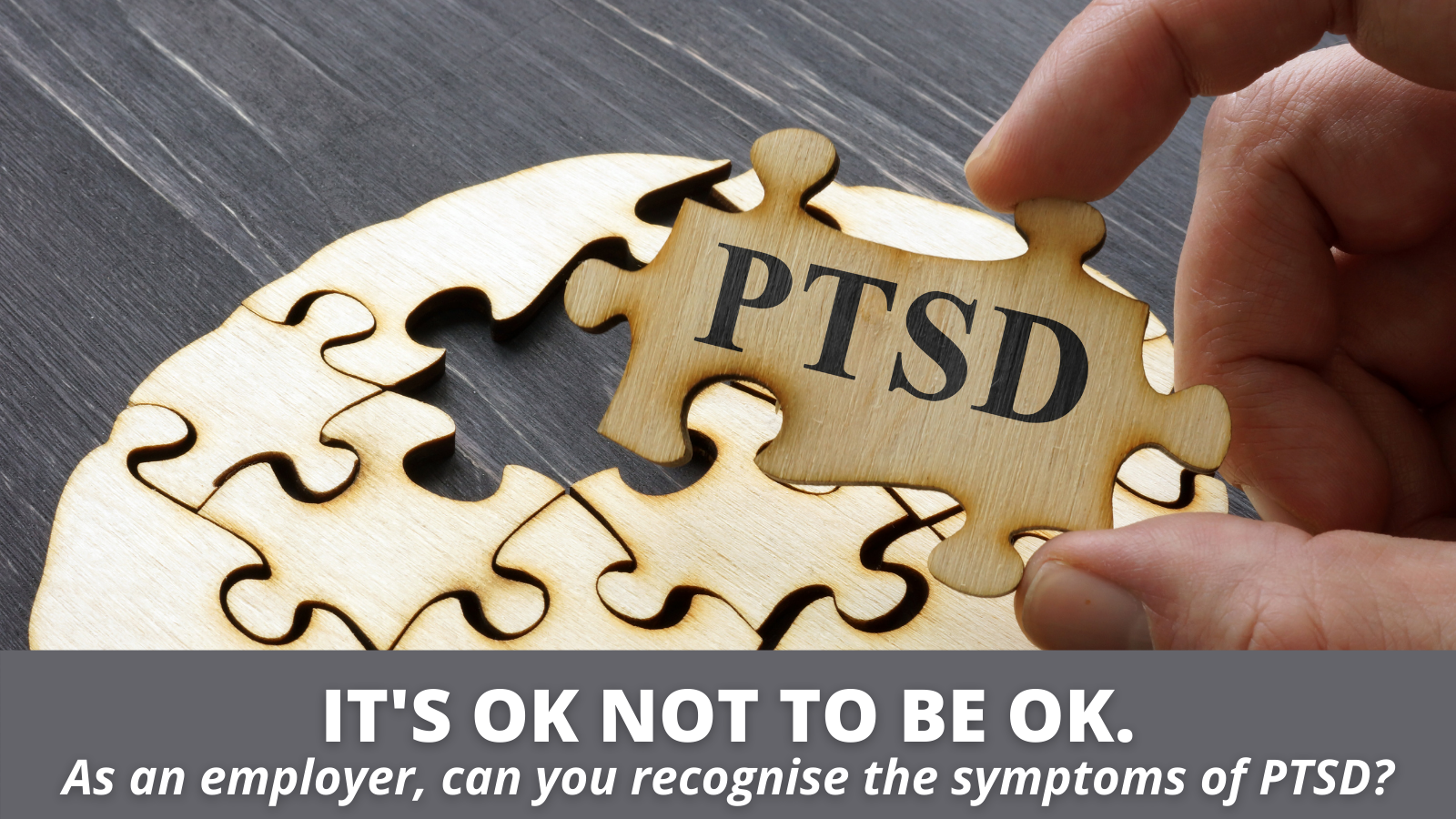PTSD – At ACT Curious we are seeing nurses, doctors, police and emergency service staff working in a culture of it’s okay to not be okay.
In all emergency service areas, frontline workers are exposed to traumatic events on a regular basis and necessarily develop good coping skills. This means that a key indicator of post-traumatic stress, exposure to trauma, is not very useful. Survival in these industries requires a determination to be okay in spite of how the day unfolded.
PTSD can develop when a person
- directly experiences trauma
- witnesses traumatic events
- is closely related to a person experiencing trauma, or
- is repeatedly exposed to aversive details of the trauma (not through media).
Culture in workplaces develops from the behaviours and practices that are the norms for that work. Frontline workers are trained to carry on irrespective of the situation – of course. In response to the shared expectation to carry on regardless, individuals build layers of coping strategies around their emotions.
One function of the coping strategies is to mask the impact of trauma, a mask for others and for one self. As part of this, the nurse, or the firefighter, may have developed a self-talk that keeps them moving forward as if everything is fine. Faking it until they make it. Emergency services workers are not focussed on themselves, their focus is on the people who really need help, they do not expect to be the one who needs help and are unlikely to ask.
Debriefing after critical incidents, peer reviews and access to EAP is all filtered through the culture and self talk. How do you as the employer make the judgement that the regular processes are not enough for one or more of your staff? You need to be aware of the culture and its impact, in fact, you may be part of the cultural story.
“Have you noticed that someone you work with, or works for you isn’t who they used to be? If so it’s time to ask yourself “Can I recognise symptoms of post traumatic stress?”
As the employer, it is essential that you can work with and steer the culture in the best interest of your workers. Have you noticed that someone isn’t who they used to be? Someone may pop into mind as you read this blog. Have you wondered what’s going on and why that person isn’t acting how you expect? If so it’s time to ask yourself “Am I competent to recognise the symptoms of post traumatic stress?”
Symptoms of PTSD vary widely and range from physical symptoms, such as breathing difficulty, headaches, dizziness, or even dental problems from clenching teeth; to cognitive impacts like reduced speed and clarity of thinking or loss of memory; to emotional effects including anxiety, fear or irritability; or to behavioural reactions such as unexpected anger, being withdrawn, or have unexpected outbursts.
PTSD is confirmed when there is clinically significant distress or impairment in the individual’s social interactions, capacity to work or other important areas of functioning. The idea is to recognise symptoms before there is significant distress.
Talk to ACT Curious about intermediate actions you can take to promote your staff readiness to talk about events with professionals, or to gain a snapshot of the culture and its effect on staff coping skills. Encourage people to recognise when they are working with someone who isn’t who they used to be, our frontline workers are too valuable to do less.
“At ACT Curious we understand emergency services work and the impact on front line workers.”
CONTACT US If you want additional support, ACT Curious can connect you to a behavioral therapist that meets your needs. You can get started today if ACT Curious EAP is offered by your employer.
DISCLAIMER: The content of this blog is not intended to be a substitute for professional medical advice, diagnosis, or treatment.
ABOUT THE AUTHOR Michelle Trudgen Clinical Director, ACT Curious.
copyright: 1 March 2018






